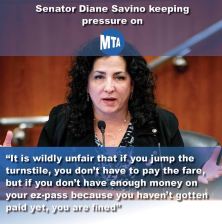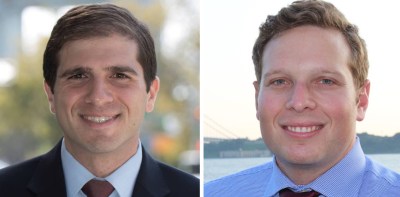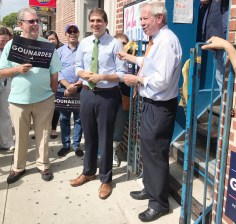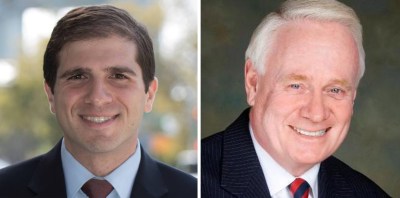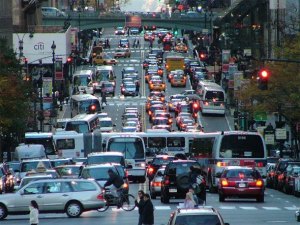Robbin’ Hoods! Brooklyn Pols Would Swipe Money From MTA And Give It To Verrazzano Drivers
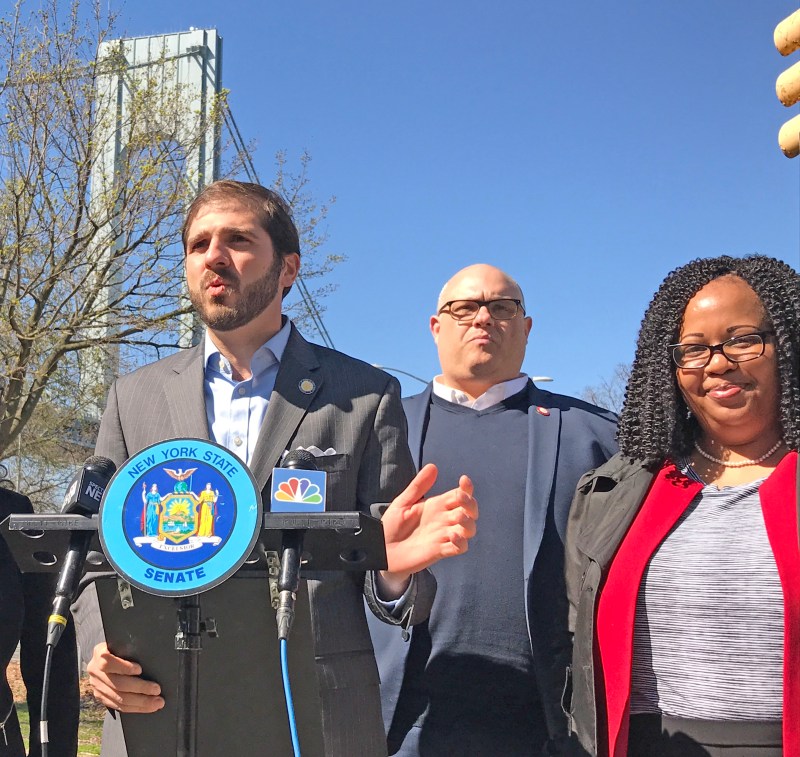
Welcome to carveout county.
Four Southern Brooklyn politicians — all of whom consider themselves progressives — are demanding discounts for Brooklyn residents who drive regularly over the Verrazzano Narrows Bridge, despite a loss in revenue for the MTA that would hurt subway and bus riders.
The bill’s sponsors — State Senators Andrew Gounardes and Diane Savino, and Assembly Member Mathylde Frontus — denied that their proposal would steal from transit riders to subsidize drivers, whose advocates are already calling for exemptions when congestion pricing tolling begins in 2021.
“This is not about carving out or exempting anyone,” Gounardes said. “This is about giving specific relief to people who are not taking mass transit. … This is about people who need to drive regularly into Staten Island, which has its own lack of transit options. … The MTA has a financial crisis, but it’s not an excuse to solve that crisis on the backs of people in southern Brooklyn who are already struggling with high rents and high property taxes and also pay the highest toll in the country.”
The bill’s proposed reductions would apply only to Brooklyn residents who make more than 10 crossings per month. It would replicate the discounts that Staten Island residents already receive to drive over the bridge, whose one-way toll is $19 — though it drops to $12.24 for drivers with E-Z Pass. Staten Island residents pay only $5.50 for the round-trip. The tolls generate revenue for the MTA, though the agency declined to discuss the proposal or even provide statistics showing how many Brooklyn drivers would qualify for the discount.
The proposal comes on the heels of Queens politicians successfully convincing the state to siphon off money from transit so that drivers could get discounts on the Cross Bay Bridge.
Given the high stakes for transit, the group of politicians did not receive a single sympathetic question at Tuesday’s press conference, as reporters focused on the loss of revenue for the MTA and on the fact studies show that toll reductions tend to encourage more driving.
Savino was particularly frustrated by the line of questioning:
“Let’s try this again,” she said. “I only speak one language so I’m going to try this one more time: We are saying that people who are required to go to Staten Island on a regular basis be given a lower toll so that they are not saddled with these exorbitant tolls because they have no choice.”
Another reporter “tried it again” as well, this time slipping on a velvet glove:

“You obviously have so much sympathy to Staten Islanders who struggle with public transit,” Savino was asked. “So what do you say to those commuters who will see this as s subsidy to drive to Staten Island at the expense of transit users?”
“They’re not going to see it that way because this isn’t taking money from their pockets,” she said. “I believe all toll payers should get toll relief. … Everybody should pay something and everybody should get something. That’s not the system we have now. People with the most transit options pay the least and people with the fewest transit options pay the most.”
None of the politicians mentioned global warming or the planet’s dependence on fossil fuel for transportation. Also, they declined to accept that at least part of the purpose of a toll is to discourage driving and to equalize the subsidy that drivers may not even be aware they are receiving, experts have said.
“It’s great for the city’s regional economy that the highway network accommodates travel between areas peripheral to the center,” said urban planner Ed Janoff of Street Plans. “The problem is that these sorts of cross-region trips have an outsized impact on the extensive publicly funded surface infrastructure they utilize, and on the health and welfare of the communities they travel through, relative to what drivers pay for them.
“By avoiding the few tolled bridges and tunnels, and if they can find free on-street parking spaces, drivers may not pay a nickel beyond their own vehicle operating costs — and the same income and property taxes as everyone else — while traveling dozens of miles through the most heavily populated area in North America,” Janoff added. “Meanwhile, someone taking a bus just a few blocks across town pays a $5.50 round-trip fare and sits in excruciating delays caused by all the other traffic. The regional driving trips needs to have fees associated with them which are at least comparable to local mass transit use in order incentivize organizations and individuals to utilize the regional transportation network in a way that is more efficient and equitable.”
Fees like tolls and congestion pricing do indeed hit drivers in the wallet, Janoff added, but by reducing congestion, they save those drivers time and aggravation.
Nonetheless, Frontus declined to believe that lowering the toll would encourage more people to drive.
“If you are not driving in to Staten Island now, are you telling me this discount is going to encourage a person to start driving to Staten Island?” she asked, apparently rhetorically, until one reporter, a Staten Island native, said that she could easily see herself deciding to start driving if suddenly the toll cost a fraction of its current fee.
Transit advocates credited Savino for her support of the earlier Move NY plan, but did not share her call for lower bridge tolls.
“The Move NY plan would’ve lowered tolls on bridges where there are fewer transit alternatives, like the Verrazzano, so the idea isn’t so foreign,” said Joe Cutrufo, a spokesman for Transportation Alternatives. “But is it a great idea to be lowering tolls in general? No, of course not. But if it were to be presented as a choice between, say, lower tolls between Staten Island and South Brooklyn or more exemptions for drivers entering the Manhattan central business district, this is the more-equitable proposal.
“Region-wide toll reform ought to be done not with one-offs like these, but in a more holistic manner that helps to discourage toll-shopping and the added vehicle miles traveled that comes with it, makes sure we’re not providing an incentive to drive where there’s transit available, and ensures that the transit system is funded,” he added.
Gounardes said he was open to expanding the Brooklyn-only discounts for other New Yorkers who use the Verrazzano Narrows Bridge to get to work or jobs on Staten Island.
“At the end of the day … I want toll equity across the city,” said the freshman lawmaker, who defeated veteran lawmaker Marty Golden last year with a campaign that focused on livable streets issues. “We have students who live in this neighborhood who go to the College of Staten Island or to Wagner College who drive every day. We have people who teach at Staten Island schools or work in the hospitals and mass transit is not a viable option.
“Yesterday, on Twitter, someone said to me, ‘I drive over that bridge six times a week to go to work, and I pay through the nose every single time,'” Gounardes added. “So we are trying to give targeted relief.”
Frontus was clear on the political upside of helping drivers with a targeted subsidy that few transit users would likely notice.
“To the people of Brooklyn, we have your backs and we are with you in solidarity,” she said.
Reminder: Fewer than half the households in Brooklyn even own a car.

